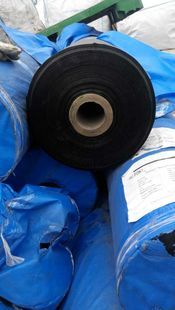1. Water resistance
Water resistance refers to the performance of water under the action of water and infiltration after the water is basically the same, under the pressure of the water has impermeability, often impervious to water, water absorption and other indicators.
2. Temperature stability
Temperature stability refers to the property of not flowing, bubbling, non-sliding at high temperature, and non-brittle at low temperature, that is, the ability to maintain the original performance under a certain temperature change. Commonly used heat resistance, heat resistance and other indicators.
3. Mechanical strength, elongation and fracture resistance
It refers to the performance of a waterproof membrane under a certain load, stress or under certain deformation conditions. The commonly used indicators such as tensile force, tensile strength and elongation at break indicate.

4. Flexibility
Flexibility refers to the ability to maintain flexibility at low temperatures. It is very important to ensure easy construction and no brittle fracture. Commonly used flexibility, low temperature bending and other indicators.
5. Atmospheric stability
Atmospheric stability refers to the ability to resist erosion under the long-term comprehensive effects of sunlight, heat, ozone and other chemically eroding waterproof materials, waterproof material brands, waterproof membrane performance media and other factors. Commonly used indicators such as aging resistance, heat aging retention rate.